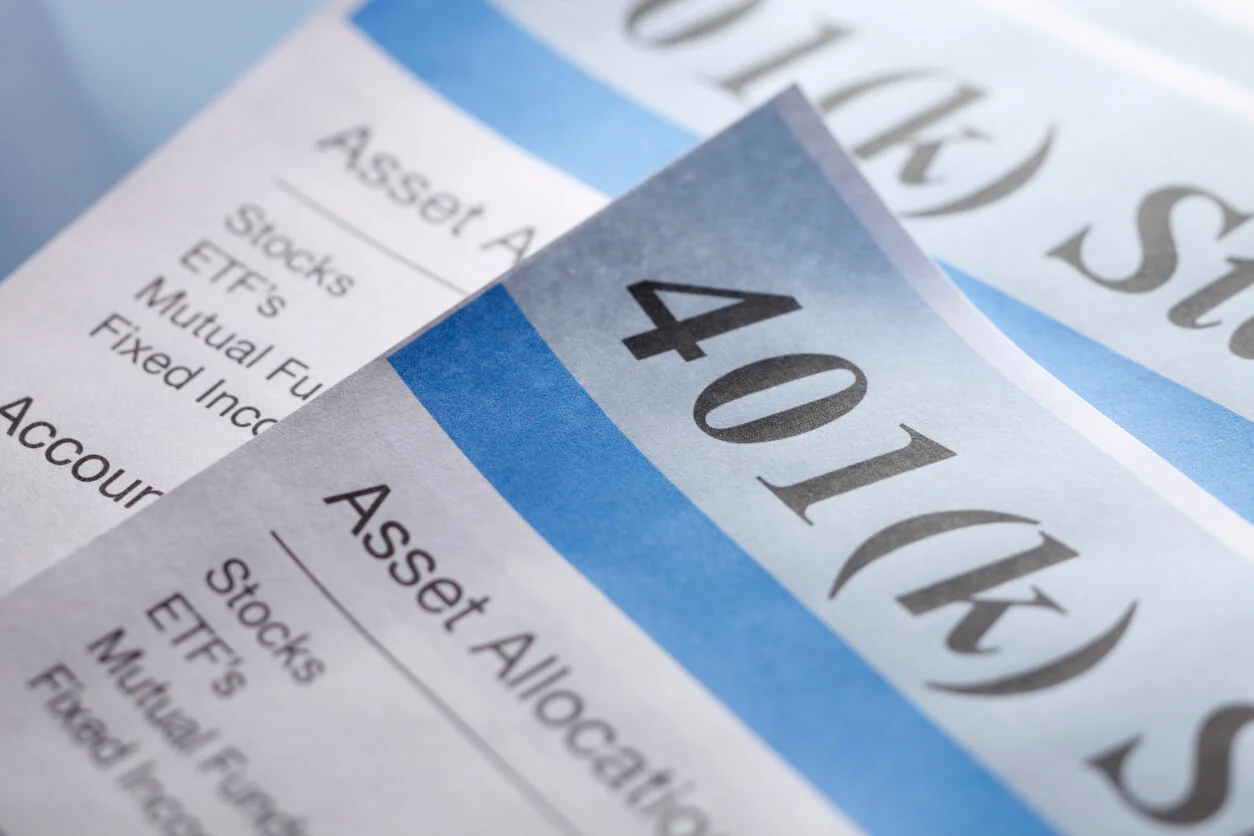Are You Taxed On Your 401(K) Or Roth 401(K)?

At least once a day as your taking phone calls and navigating the business world, you dream of retirement. However, how do you pay for it? A 401(K) is recommended by putting 80 percent. For instance, if you made $50,000 per year before retirement, then you’ll need $40,000 annually in retirement.
Social Security isn’t going to cover that much. Of course, there are several avenues to find income in your senior years. These revenue streams include:
- Social Security
- Pension
- Savings
- 401(K) or Roth 401(K)
- Investments
- Rental property
You’ve probably already heard about 401(K)s and Roth 401(K)s but you’ve never really understood the difference between the two. You’ve probably also wondered if and when you need to pay taxes on these types of retirement accounts. The truth is that you have to pay taxes on both. It’s just a matter of timing. You can pay now, or pay later.
What Is a 401(K)?
A 401(K) is an investment account that’s specifically designed to be there for your retirement. It’s an account that’s sponsored by your employer. Both you and your employer contribute money to the account. You contribute to this account by setting up an automatic payroll deduction, and you usually select a percentage of your earnings to move to the account.
The name of this account comes from the U.S. Internal Revenue Code. You don’t pay taxes on any of the contributions at the time you put the money into the account. You pay taxes on the funds when you withdraw them. In most cases, this is after you retire. If you withdraw funds before you retire, you may end up paying penalties, depending on the circumstances for taking the money out of the account.
Once the money enters your 401(K) account, you get to decide how to invest the funds. Many account holders invest in mutual funds, but you can also invest the money in stocks and bonds. The goal is to safely grow your funds so you have enough money for your retirement.
How Much Can You Contribute?
In 2019, you were allowed to deposit up to $19,000 per year into your 401(K). In some cases, the amount you can deduct from your taxes that goes into your 401(K) declines because you or your spouse’s employer offers its own retirement plan other than contributing.
Accessing Funds in Retirement
At the age of 59 years and six months old, you can begin to access the funds in your account without a penalty. There are cases, such as total disability, when you can access it earlier. There comes a time when the IRS requires you to withdraw a certain percentage each year. For most people, this begins at age 72.
This is referred to as a required minimum distribution (RMD), and the percentage that you must take out of your 401(K) is based on a table produced by the IRS and directly related to your life expectancy. If you’re over the age of 72 and still working for the company that created the account, you don’t have to take the yearly RMD.
What Happens to Your 401(K) When You Leave Your Employer?
Your 401(K) is directly linked to the employer who created it. You have several options when you leave your job. Here are the options:
- Withdraw the funds: If you do this, you’ll pay a 10 percent penalty for early withdrawal.
- Move it into an individual retirement account (IRA): There are strict rules governing this type of move. The institution you’re moving it to can help you navigate the move.
- Leave it with your former employer: The money is still yours, but you can’t add to that account.
- Move it to your new employer’s 401(K): Some employers will allow you to bring your old 401(K) with you. Like with the second and third options this will help you avoid tax penalties.
What Is a Roth 401(K)?

A Roth 401(K) is a company-sponsored retirement fund, where both the employer and employee put funds into it. There is a yearly limit as to how much you can deposit each year. The largest difference between them is that the money deposited into the fund has already been taxed and won’t be taxed when you withdraw it in retirement.
Typically, people select the Roth 401(K) over the 401(K) if they believe that they’ll be in a higher tax bracket when they retire than the one they’re currently in. For instance, if you’re in your early 20s and just starting your career, you expect your salary and subsequently, your tax bracket to rise significantly before you retire. In this case, it makes sense to pay the taxes now instead of later.
As of 2019, the yearly contribution is 19,500, making it slightly higher than a 401(K). If you’re over the age of 50, you can add an additional $6,000 annually as a catch-up contribution. This gives you a little extra money in retirement.
Not all employers offer a Roth 401(K) as an option; however, when it is offered up to 43 percent of employees will take this option. This seems to be a popular option for low-income employees and young workers who anticipate making more money later on in life than they’re making now.
Conclusion
At Silver Tax Group, we understand how confusing the tax code can be around a Roth 401(K) and a 401(K). We’re ready to partner with you and help you make the best choices possible for your financial future. We can provide you with all the tax implications for investing in and removing funds from both types of 402(K)s. Contact us today to learn more or schedule an appointment.





Free Consultation 24/7
Chad Silver
Attorney

Silver Tax Group Locations


777 South Flagler Drive
Suite 800 – West Tower
West Palm Beach FL 33401

4005 Guadalupe St
Suite C
Austin, TX 78751


